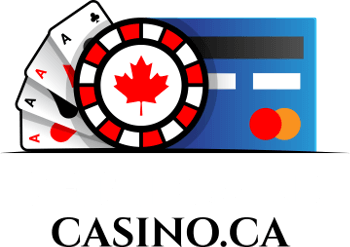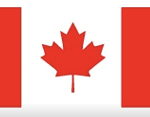Psychology of a Predatory Poker Player
Rather be the hunter than the prey…
Naturals, Imagine Dragons

Think, for a moment, what separates predator from prey. The predator is a veracious but patient hunter. The cheetah may be the fastest animal in the world, but it is also the most long-suffering. The cheetah moves with sloth-like intent, with stealthful grace, until he’s close enough to strike off in a dead run. When he does, he’s so aware of his prey that he’s able to use speed and predictability to cut off any potential means of escape.
Likewise, it is the predatory nature of professional poker players that gives them such a palpable edge over inexperienced opponents. They are able to observe them for a long period of time and predict their every move. The predatory player knows when his prey is weak, when it’s bluffing, and most importantly, when he himself is beaten.

Every online poker player has herd the shark-versus-fish analogy that exists on the virtual realm. The best online players are sharks, and the worst are the pools of fish they prey upon. But the theory goes so much deeper than that.
Sharks weren’t chosen as the prime comparison because of their size or insatiable hunger. They were chosen because they are the apex predator of the ocean. They exist in supremacy at the top of their food chain, unmatched in their dominance by any but other sharks. And if you’ve noticed, sharks do not challenge one another. They simply co-exist, sharing in the abundant food supply that makes up 71% of the earth’s surface.
How to Become a Predatory Poker Player
So the cheetahs stalk the terrestrial tables and the sharks haunt the online realm. That’s an easy enough concept to grasp. What you really want to know now is how to become one, right? It’s going to take time and patience. Even the best hunters were trained by a role model – a parent, or tribal leader – before they were allowed to hunt on their own. Experience is the key to acquiring any skill.
To become a hunter, we must act like a hunter. In time, the skills will develop. You’ll begin to see others as prey, through a predator’s eyes. You’ll recognize things you never noticed before. Your aim and accuracy will improve. Your intuition will home to a fine-edged blade.
Here are some of the tools you can begin to employ now on your journey into the wilderness.
Death by Self-Importance
Your hole cards are not important. Do not look at them when they are dealt. No, you’re not trying to exude indifference or an air of easy distraction. If you take even a moment to examine your own cards, you could be missing out on a wealth of information around you.
This is the perfect time to witness the reaction of everyone else as they inspect their own hands. The slightest facial twitch can mean everything. If an opponent loses control of their concrete calm for even half a second, this is the moment you’ll see it. Take that extra second to observe any shred of evidence your opponents may offer.
The Tell Tale Stacks
Take note of everything your opponents do, especially regarding their chip stack. What condition is it in? Is it a large or low stack, and how well do they keep it organized?
A sloppy pile translates to a sloppy player – one who’s there for fun more than winning. This type of player may bluff often, so keep an eye on the flop to see if his bets are telling believable stories.
A perfectly stacked tower points to taut nerves. They know how to play and came here to win, but aren’t the type to take risks. Don’t expect any bluffs from their position.
The Power of Observation Compels You
This is the hardest part, and will take the longest amount of time to master, but without it, your predatory nature can never fully develop. You need to begin memorizing the betting style of every player at the table. Each one will display a different style. Some bet faster, some slower; some will check, bet, raise or fold in specific situations. Some players hesitate before a bluff, or a big hand, while others snap-call these situations.
The idea is to understand which players do what, and to develop a psychological profile of each one. Phil Hellmuth’s Poker Animals characterization model is a perfect example. By profiling everyone, you will begin categorizing your opponents into smaller and exploitable groups, understanding how to interpret their characteristics and learning to deal with them individually. With enough practice, you will recognize each player type quickly and with uncanny accuracy.
Be the Opposite of Everything You’ve Just Learned
Now that you know the basics of what to look for – and you’ll discover many more subtleties yourself along the way – make sure that you’re not making any of these categorical mistakes. You can rest assured you’re not the only one at the table looking for them.
As such, the best players will become easy to identify as well. They are the ones who – like you – use this knowledge to ensure they never expose a pattern in their own game play. They will constantly change up their betting styles, their organizational chip-stacking skills, and their attitudes at the table.
Party Poker Canada, the most trusted Canadian gaming destination, and our editor’s pick for two years, now offers a wide variety of popular card games: from Texas Hold’em, to Omaha, to 7 card stud, to Limit Hold’em and even casino games like blackjack. Play for fun, for free, or play for real, for real money that is ! Our editorial pick for 2023.

www.PartyPoker.com
 (Reminder to Gamble Responsibly)
(Reminder to Gamble Responsibly)




